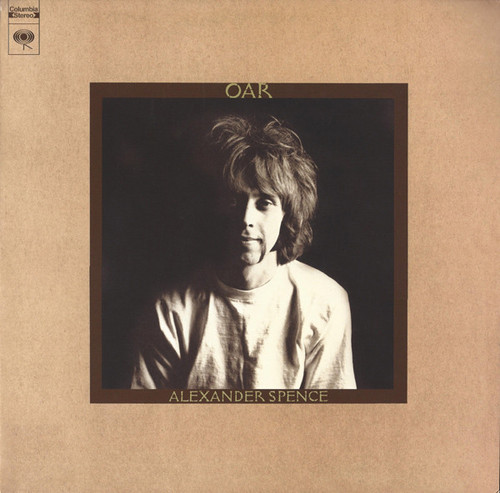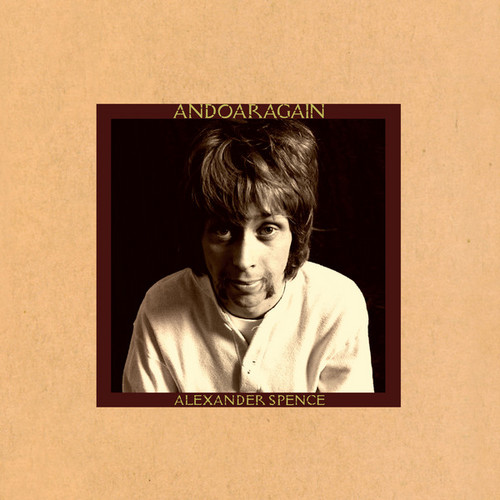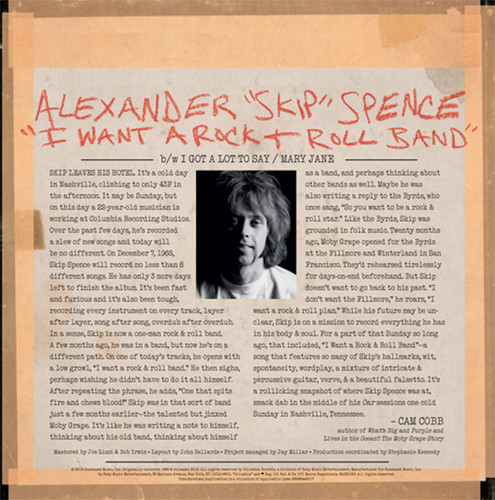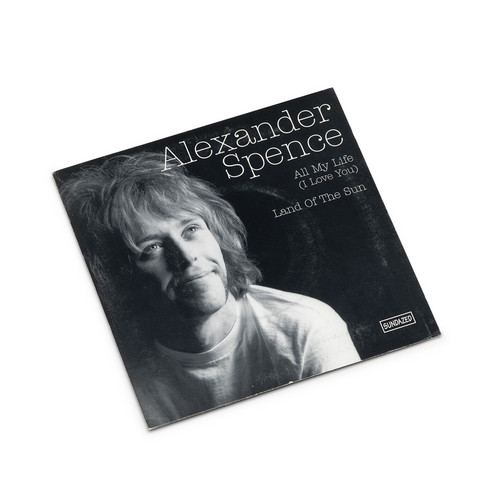Alexander Skip Spence
Alexander "Skip" Spence first came to the attention of the record buying public when he played drums on the first Jefferson Airplane album, but his first and preferred instrument was guitar. He only became a drummer because an Airplane member spotted him in a club, thought he looked like a drummer, and gave him a pair of sticks. Spence was too much of a free spirit to last with the Airplane or any other band. His spontaneity and lyrical guitar work had a lot to do with the artistic success of Moby Grape's early records, but he left that band after his personal quirks took a nasty turn and he threatened his bandmates with a fire axe. This episode led to a lengthy psychiatric hospitalization, the first of many instigated by the schizophrenia that dogged Spence for the rest of his life until he died of lung cancer. Oar, his only solo record, was tracked shortly after his release.
Alexander "Skip" Spence first came to the attention of the record buying public when he played drums on the first Jefferson Airplane album, but his first and preferred instrument was guitar. He only became a drummer because an Airplane member spotted him in a club, thought he looked like a drummer, and gave him a pair of sticks. Spence was too much of a free spirit to last with the Airplane or any other band. His spontaneity and lyrical guitar work had a lot to do with the artistic success of Moby Grape's early records, but he left that band after his personal quirks took a nasty turn and he threatened his bandmates with a fire axe. This episode led to a lengthy psychiatric hospitalization, the first of many instigated by the schizophrenia that dogged Spence for the rest of his life until he died of lung cancer. Oar, his only solo record, was tracked shortly after his release.
Oar
The haunted genius of Alexander 'Skip' Spence's Oar returns at long last to its original format, the LP. Spence, a founding member of seminal San Fran skull benders Moby Grape, cut his only solo work in Nashville immediately after being released from New York's Bellevue Hospital late in 1968. Unavailable on the collector's market these days at any price, Oar vanished without a trace when first released in 1969. Frequently compared to the likes of Syd Barrett and Nick Drake, Spence's visionary w…
AndOarAgain
AndOarAgain provides unparalleled access to what David Fricke calls “the most harrowing and compelling artifacts of rock & roll’s most euphoric era” across three dozen unheard tracks! In addition to the quintessential original album, AndOarAgain features nearly two hours of unheard music on the way to Oar–along with roads not taken–that both clarifies and muddies the enigma of how psychedelic legend Alexander “Skip” Spence determined the final state of his iconic masterpiece. The time: December,…
I Want A Rock & Roll Band / I Got A Lot To Say / Mary Jane
Skip Spence leaves his hotel. Its a cold day in Nashville, climbing to only 43 F in the afternoon. It may be Sunday, but on this day a 22-year-old musician is working at Columbia Recording Studios. Over the past few days, hes recorded a slew of new songs and today will be no different. On December 7, 1968, Skip Spence will record no less than 8 different songs. He has only 3 more days left to finish the album. It's been fast and furious and its also been tough, recording every instrument on ever…
All My Life (I Love You)
Two of Skip's rare post-Oar studio excursions; 'All My Life (I Love You),' from '72, is Spence's boisterous take on Badfinger/Raspberries-style power pop, while 'Land Of The Sun,' recorded in '96 with the X Files in mind, sounds like nothing else under the sun, and finds Skip sonorously intoning a poem atop a psychedelic bed of sound.



